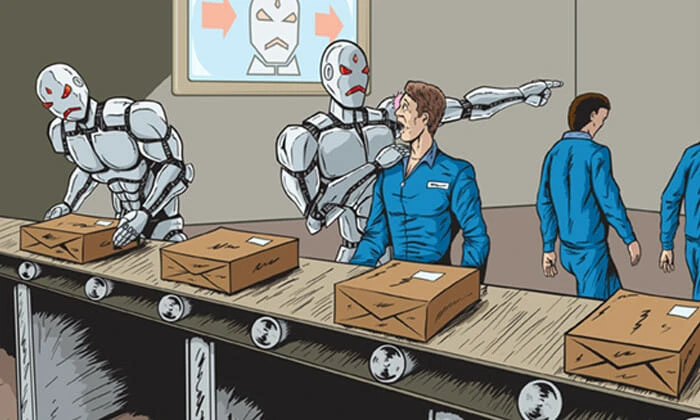
Will automation eat into HR jobs?
Imagine the whole HR team dismantled in your office.
With increasing automation, manual work has been significantly replaced by sophisticated software and ERP systems. And, do you think the automated HR processes will run smoothly without manpower? Will it completely and totally replace manual work?
There is no straight answer to these questions.
HR, unlike any other assembly line work, is anyway not a mechanical task. Even though there is a lot of processing work to be done in some areas, such as payroll and recruitment, and most of these functions are already automated in big corporations, that does not make the functions and role of the HRD redundant.
Human resources are named so for a particular reason. They provide a platform to employees where they can raise their concerns, air their frustrations, motivate them, engage them, re-skill them, roll out disciplinary action or guidelines and encourage them in creating an ideal workplace. Automated machines and algorithms cannot provide the emotional intelligence required to perform all or even a portion of these tasks independently.
Automation saves time, cost, and labor, but it’s still primitive in terms of adding that personal, human touch to employee engagements. How automation really helps is that the tedious admin work gets delegated to system software, while HR finds more bandwidth to bring about real cultural, behavioral, and development interventions aligned to the business interests of their firm.
This would result in creating real impact HR in the firm and projecting them as a strategic partner (rather than a cost center) for the company. If this happens, it would be an absolute win-win situation for all since it would enhance the perceived value of HR in the organization.
When in the future (if at all, ever) AI is developed enough to handle human emotions and organization dynamics, politics, cliques, etc. diplomatically and strategically for the benefit of the organization’s culture and development, there can be no denying that HR might still be needed to supervise and monitor all the activities at the manager level.
That said, HR has been evolving with speed in recent years. From a corner room near the security post, it has moved to the boardroom and even higher in some people-driven organizations. Automation is a boon for HR. All boring, time-consuming tasks are now being assigned to smart systems and machines where they are run. However, human intervention is still required to run this software. Indeed, the quality of this human intervention has now become the key differentiator for the HR service. Even now, there are so many companies where old-fashioned HRM plays a key strategic role, along with a degree of automation.
The bottom line is that we will always require managers to run machines. The latter cannot run without the former.




